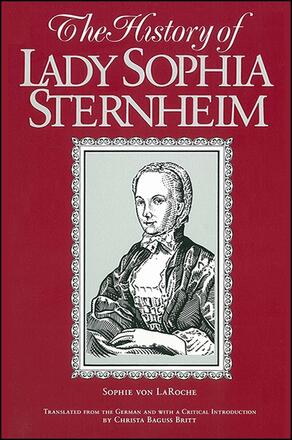
The History of Lady Sophia Sternheim
Extracted by a Woman Friend of the Same from Original Documents and Other Reliable Sources
Alternative formats available from:
Description
This is the first translation of this work into English since 1776, and the only English version that is complete and unadulterated.
Sophie von LaRoche is credited with being the first German female novelist and author of the first German "woman's novel." The History of Lady Sophia Sternheim is the first German Bildungsroman with a female protaganist, the first full-fledged German epistolary novel, and the first German sentimental novel. Its autobiographical aspects, incorporating thinly disguised vignettes of Wieland, Goethe, and other great figures of the day, give the work an unmistakably true-to-life flavor and immediacy.
Christa Baguss Britt is Professor of German at the American School of International Management in Glendale, Arizona.
Reviews
"This novel, phenomenally popular in its day, shows that historians of the novel have forgotten that women did write, did compose bestsellers, and that — contrary to Hawthorne's complaint — they were not all 'damned scribbling women' but Fanny Burneys and Maria Edgeworths, i.e., skillful fictionalizers of their own times. Thus, Professor Britt's translation will help rectify the canon. The novel also, as she points out, is a female Bildungsroman, and, I suppose most interesting to me, shows a transition from the epistolary to the I-narrative. Professor Britt has recovered for those who do not read eighteenth-century German comfortably a genuine literary experience which is also a document of the enlightened female consciousness of the times. " — Marilyn Gaddis Rose, State University of New York, Binghamton
"What I like most about this book is the fluent, readable, and faithful translation; it makes available a major novel of the eighteenth century. The translation renders the tone of the original, its nuances, and flavor. The original novel is a fascinating period piece and has been translated with care, precision, and a superb feeling for the original language as well as for modern English." — Barbara Becker-Cantarino, The Ohio State University